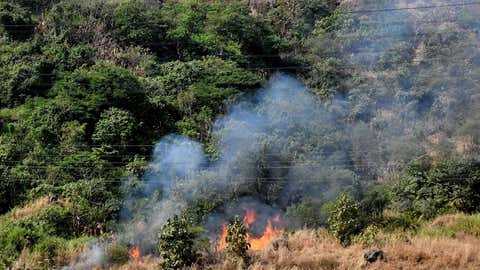
On March 21, the world celebrates the International day of forests every year since 2012 to raise awareness about the importance of all types of forests. The theme this year is 'Forests and biodiversity: too precious to lose'. As research and observations show that global biodiversity is deteriorating at an accelerated pace and millions of hectares of forests are being lost every year, the theme seems more apt than ever before.
"2020 has been referred to as a "Nature Super Year" and must be the year where we turn the tide on deforestation and forestry loss," says UN Secretary-General António Guterres.
As per the latest assessment report of the Intergovernmental Science-Policy Platform on Biodiversity and Ecosystem Services (IPBES), 25 per cent of plant and animal species are threatened, and around 1 million species are already facing extinction, many within decades. Moreover, between 2010 to 2015, 32 million hectares of forest were lost in the most biodiverse regions of the tropics.
Added to the human pressure, the accelerating climate change and frequent forest fires have been taking a toll on the fragile forest ecosystems. Last year the world witnessed few of the most intense forest fires on record all across the planet—Amazon, Bandipur, California, and Australia bushfires.

"Given the vital role of forests in capturing carbon dioxide, it is alarming that forests are increasingly victims of drought conditions induced by climate change. The past year has seen enormous forest fires, from the Canadian Arctic and Siberia to California and Australia. As well as heart-breaking losses of lives, homes and livelihoods in populated areas, these fires have been responsible for massive carbon dioxide emissions," says António Guterres, on the occasion of the world forest day.
The extent of degrading forests is manifested in the amount of research-based warnings we have been receiving in recent times. In March alone, two noteworthy studies highlighted that even the largest terrestrial forests like Amazon could collapse within the next 50 years and tropical forests could start adding carbon, instead of removing it, by 2030.
The year 2020 is called the "Nature Super Year" as it includes multiple milestone summits to guide global policy on biodiversity, including the UN Biodiversity Conference where a new global biodiversity strategy for the next decade will be adopted—the Post-2020 Global Biodiversity Framework.
The IPBES report adds that the current sustainable goals for conserving biodiversity cannot be met by 2030 if humanity continues in the current trajectory. However, the assessment also shows that, with concrete and immediate transformative changes, nature can be conserved, restored and used sustainably to ensure that human wellbeing and environmental sustainability are achieved simultaneously.
This year's forest day reminds us of our responsibility to mend our ways and conserve the most biologically-diverse ecosystems on land that are home to 80% of terrestrial life.








